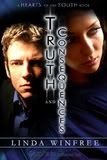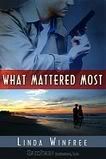Finicky or Demanding?

As I mentioned in my post last Monday, I'm a finicky reader. But recently, a revelation came to me while judging a contest, and I now think I'm more demanding than finicky.
I've noticed a familiar thread that causes my interest to wane: lack of consistency. Character consistency, to be more specific.
About a year ago, I began an intense search into the craft of building characters. My goal was to create heros and heroines that "jump off the page", characters "the reader continued to think about after they’d closed the book". If you've studied character development at all, those phrases are familiar. They establish...The Gold Standard. Although whose Gold Standard is a bit murky.
But I digress...
We strive to create characters who are unique and quirky, deep and motivated, compelling and flawed. But what I've found lacking in more than a few novels is the development of a character-related element that, IMHUO, is more important than any other single element: character consistency.
In the perfect novel (somewhat like the perfect house--there is no such thing), plot stems organically from character, takes on purpose, and thusly forms the character arc. Goal, motivation and conflict--the all-essential GMC--also stems from character. Without character you have neither plot nor GMC. Without plot and GMC, you have no story. Therefore, when characters are not consistent, the entire story goes wonky (that's a highly technical term, in case you didn't know.)
This is important on a fundamental level because lack of character consistency creates doubt in the reader. In other words, poor character consistency can damage author credibility or, even worse, destroy it. And if the reader can't trust the author, no matter what that author does or doesn't do, won't matter. The reader will put the book down and you can bet the next time they're trying to choose a read, that author will be one they steer clear of.
One of the books I read recently had an ex-military hero who I found inconsistent in a number of ways. Besides the obvious frustration that caused, I realized that because I didn't believe in the core of this character and his actions, I began doubting every other aspect of the story. I inspected the heroine's character more closely and, not surprisingly, found inconsistencies there that irritated me as well. Even the secondary characters were skewed.
Halfway through the book, it became obvious that the author had manipulated the characters to fit her plot. But because the characters weren't solid, the plot was weaker than it could have been, or should have been.
I'll give you examples of only a few of the inconsistencies I noticed in the character and attempt to illustrate how they affected the plot.
The hero was ex-military who had turned private investigator.
- He repeatedly ignored his gut feeling about a situation he was observing. Continually disregarded his intuition about the actions or character of those he was investigating. I found those actions highly inconsistent with ex-military turned PI. And when those oversights gave way to plot points, I felt cheated as a reader, manipulated into going where the author wanted me to go instead of following the characters through their story.
- Upon meeting the heroine, the hero is immediately attracted to her, but covers with a disinterested machismo. In the next chapter, and in a dangerous situation where he should be protecting the girl, one deep look into her eyes and he's frozen. His mind drifts. Not good. Not smart. Not consistent with a military role. But that's what the author used to build the romance--an intangible connection he saw in her eyes.
- To make his character even less consistent, in another confrontation just pages away where the heroine is still present, he doesn’t hesitate to use those ingrained military skills to fight off three armed men, jump out a window and plunge into a body of water where he saves himself.
Believe me, I searched for justification. If you're going to go off-road with characterization, justification is a must. But it wasn't there. What weak offers were made, came too little too late, like an afterthought. I could almost see the gap in the process, where a critique partner pointed out the inconsistency and the author went back and added in what she thought would carry the justification. It didn't work.
Honestly, the story had a lot of good pacing, twists and turns. I think the author has a lot of talent. But all that was shadowed by the inconsistencies which dragged an otherwise potential success down several levels.
This is a complicated subject that touches on so many tangents and aspects of writing, I couldn't possibly cover it here. But I wanted to bring it up because I think character consistency is a primary building block for superior story structure and a key factor in author credibility.
Any thoughts on this? Examples of strong character consistency or lack-thereof and how it supported or damaged the story? No names or titles (unless we're making positive comments, of course), just examples.
Love to hear your opinions--including the ones that say I'm way off the mark. I'm a writer, after all--I've developed a fairly thick skin.
Labels: Joan's posts







8Comments:
I'm going to come at this as a writer, using my own work as an example instead of a reader.
I'm currently planning huge rewrites on my December release because of one thing: character consistency. Frankly, my heroine was all over the place and her motivations didn't always make sense. So every change I'm making to the book is designed to make her more consistent, to strenghten her motivations/conflict.
I can already see where this will make the book better and stronger.
Story is great . . . character is key!
Interesting Lin. Any examples of her inconsistency that you're going to remedy? And plans on how you'll do it?
I just did a read-through in my novella this week, to check character inconsistency. Sometimes, I just need a fresh eye to make sure she comes across as the same person, consistently. It's more trying to see her from the reader's perspective, than from mine.
Great post!
Spy, you're right! We know these people soooo well that we sometimes forget what the reader doesn't know ... especially after revisions. It's so easy to take something essential out, thinking its just repeatitive or not needed.
BTW, I WANT to put the feed on RWKF and in the control panel it says the feed is ON, but it doesn't appear. I don't know what to do. Suggestions?
Demanding. I am too. More so the more I write.
I recently read a book by a bestselling author and I was left feeling much the same as you, J. I didn't understand the main characters' actions and motivation, therefore I didn't buy the romance between them and because of that had a hard time suspending belief for the suspense plot. Characterization is so very key in a book. More important, I believe, than any red herrings or unexpected plot twists.
In PRIDE AND PREJUDICE, the characters are perfectly consistent throughout the story. The plot came from character instead of Jane Austen twisting character to fit the plot.
The 'instant connection' is becoming a romance cliche--but the truth is, I use it too. LOL It happens in real life, but just because my characters are attracted to each other doesn't mean my smart characters suddenly start acting like idiots.
E - you said it perfectly...you have to have that basic credibility of character before you can suspend your disbelief elsewhere.
The instant connection is a hard one to give up. Especially in shorter stories, like category length, where the h/h have never met before but have to be together throughout the book with sparks flying.
You're right, it does happen in real life. Just not all that often.
Post a Comment
<< Home